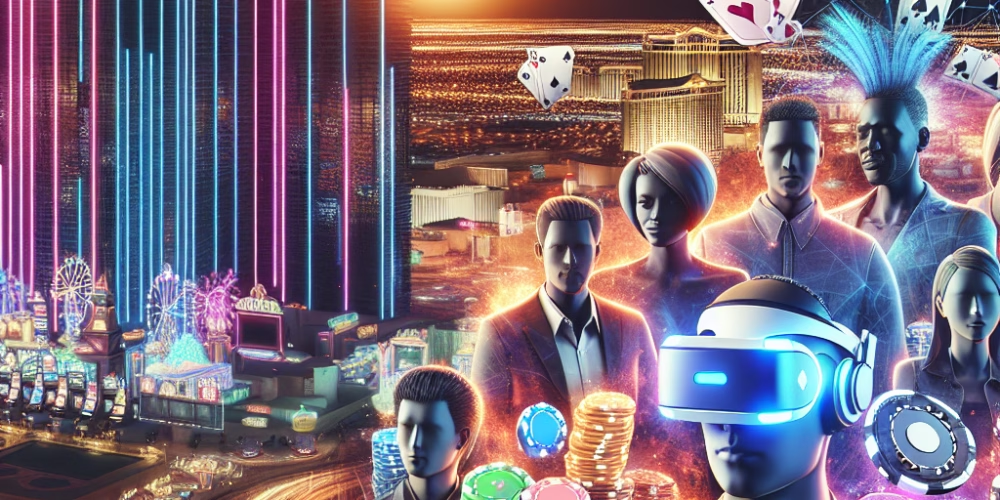In a landmark move blurring the lines between virtual reality (VR) and traditional gambling, Las Vegas has debuted the first-ever VR gambling arena. This innovative venue, launched earlier this week, integrates cutting-edge VR technology with classic casino games, offering patrons a groundbreaking new way to gamble. Situated on the bustling Las Vegas Strip, the arena has already started to reshape the local gambling scene, potentially altering the casino industry’s future on a global scale.
The multi-million dollar facility spans over 30,000 square feet and features a variety of VR gaming stations where players can immerse themselves in a digitally constructed world. These stations host a wide range of games, from VR adaptations of slot machines and roulette to more elaborate setups for poker and blackjack, where participants can interact with each other’s avatars as if seated at the same table.
“The goal is to merge the thrill of traditional gambling with the immersive escapades of virtual reality,” says Elena Mirovich, CEO of NextGen Casinos, the firm behind this pioneering project. “We aim to attract not just seasoned gamblers but also younger demographics who seek experiences that are technologically engaging and visually compelling.”
Adaptation to new tech-friendly environments is crucial as casino owners vie for the interest of millennials and Gen Z, groups less drawn to traditional forms of gambling but who represent a significant share of the entertainment-focused consumer market. According to a recent study published by the Global Gaming Association, engaging these demographic segments could lead to an estimated 30% increase in casino revenues over the next five years.
In addition to individual gameplay, the arena offers VR gambling tournaments, live-streamed for remote participants. This feature not only enhances user engagement but also places Las Vegas casinos at the forefront of a potentially lucrative online gambling sector, which has seen exponential growth following advances in VR technology.
The launch has also positively impacted local businesses. The influx of visitors drawn by this novel attraction has seen an uptick in hotel bookings, restaurant traffic, and overall spending throughout the area, delivering an economic boost much needed after the challenges posed by recent global events.
Security and regulatory measures have been rigorously applied, with advanced identity verification systems and real-time monitoring to ensure compliance with gambling laws and to provide a safe, responsible gaming environment. These systems are part of an industry-wide push to integrate more robust technological solutions to address the evolving needs of both consumers and regulators.
While this venture is the first of its kind in Las Vegas, it hints at a broader trend where technology and tradition intersect, offering new growth avenues for an industry that must constantly reinvent itself to maintain global appeal. As more casinos adopt VR technology, the gambling landscape worldwide might soon transform, offering experiences previously confined to the realms of science fiction.
This innovative blend of technology and traditional gaming is set to not only revolutionize the way people gamble but also potentially redefine recreational norms in one of the world’s most vibrant entertainment capitals. With other major casino hubs like Macau and Atlantic City keeping a close watch, the success of Las Vegas’s VR gambling arena might just set a new standard in the global casino industry.
James Miller is a distinguished casino strategy expert with a wealth of experience in the gambling world. At CasinoNoDeposits.com, James focuses on crafting effective gaming strategies and providing insightful reviews to guide players towards making informed decisions. His deep understanding of casino mechanics and promotional offers makes him a valuable asset to the team. Dedicated to educating players, James ensures that every piece of content is accurate, actionable, and reader-friendly.


